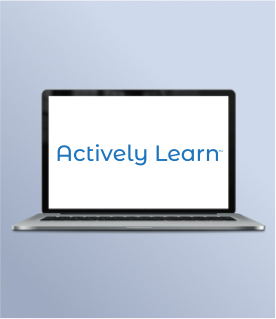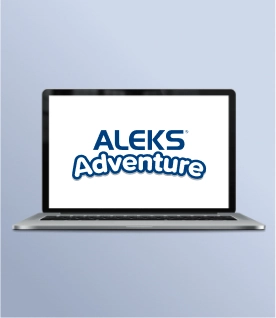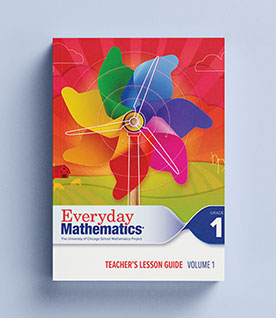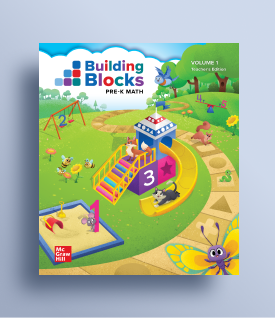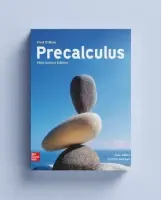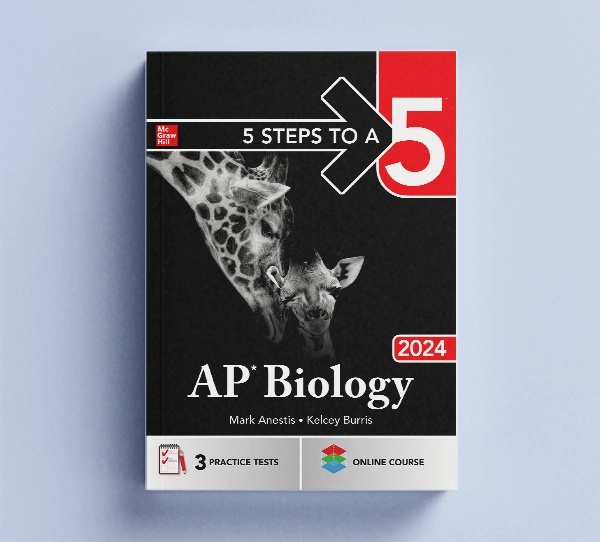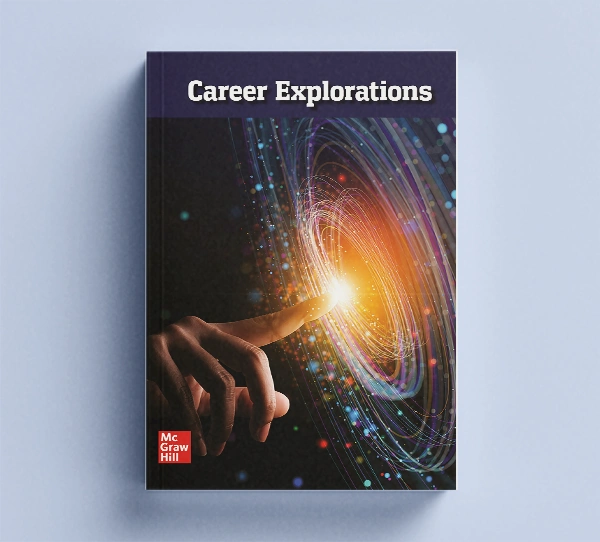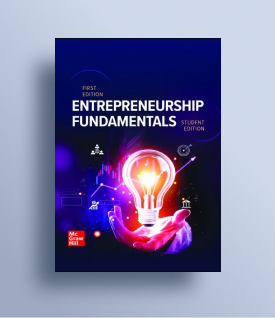My Account Details
Designing EdTech for Young Learners Using Empathy and Learning Science
A Look at an Adaptive Update to Independent Practice within Number Worlds
As classrooms evolve and research on student needs grows, we adapt our curriculum and learning tools in response. In this ongoing series, we'll take you behind the scenes with the experts who create our programs to review updates to existing programs, new technology integrations, or brand-new programs.
Today, we spoke with Misty Kouba, Intervention Product Manager, and Liz Witham, Technical Product Manager, about Building Blocks™ Adaptive, a highly personalized new edition of our intervention online math practice program accessible within Number Worlds®.
About the Program
Building Blocks Adaptive, a program within teacher-led intervention program Number Worlds, provides students with independent practice to build math proficiency through engaging activities. Our teams have been hard at work reimagining independent practice within Number Worlds, leveraging advanced adaptive technology to work engaging activities into a personalized learning progression that follows research-based developmental pathways.
Number Worlds is a PreK–8 intervention program that supports students where it counts. Rooted in decades of research and proven classroom results, Number Worlds accelerates mathematical understanding and effectively brings all students up to grade-level proficiency and beyond.
Can you tell us about the pedagogical framework within Building Blocks?
Misty: Building Blocks is a math program designed by our authors Dr. Doug Clements and Dr. Julie Sarama. Their research over the past half century has been focused on learning trajectories, which are the developmental pathways that young learners follow to develop mathematical ideas. These are observable behaviors that appear as early as infancy and remain through age eight or nine.
Dr. Clements and Dr. Sarama’s research revealed a sequence of activities that are effective in guiding children through those levels of thinking, which are the basis for Building Blocks.
What consideration went into the design of Building Blocks Adaptive?
Misty: Both Building Blocks Adaptive and Number Worlds connect mathematical concepts to things students experience in their daily lives. With the idea of “math in your world” in mind, the design team utilized a progressive building concept to illustrate how students' environments expand as they grow – much like learning trajectories follow a child’s development. The program is designed to be reflective of a child's surroundings. We begin with their home, and as we move through the program, the settings of the activities expand just as their world expands. They'll see things like school, the park, the city, and at the end, when we’re thinking about STEM, they’ll see outer space. It’s a beautiful, empathetic design reflecting the idea that math is all around us.
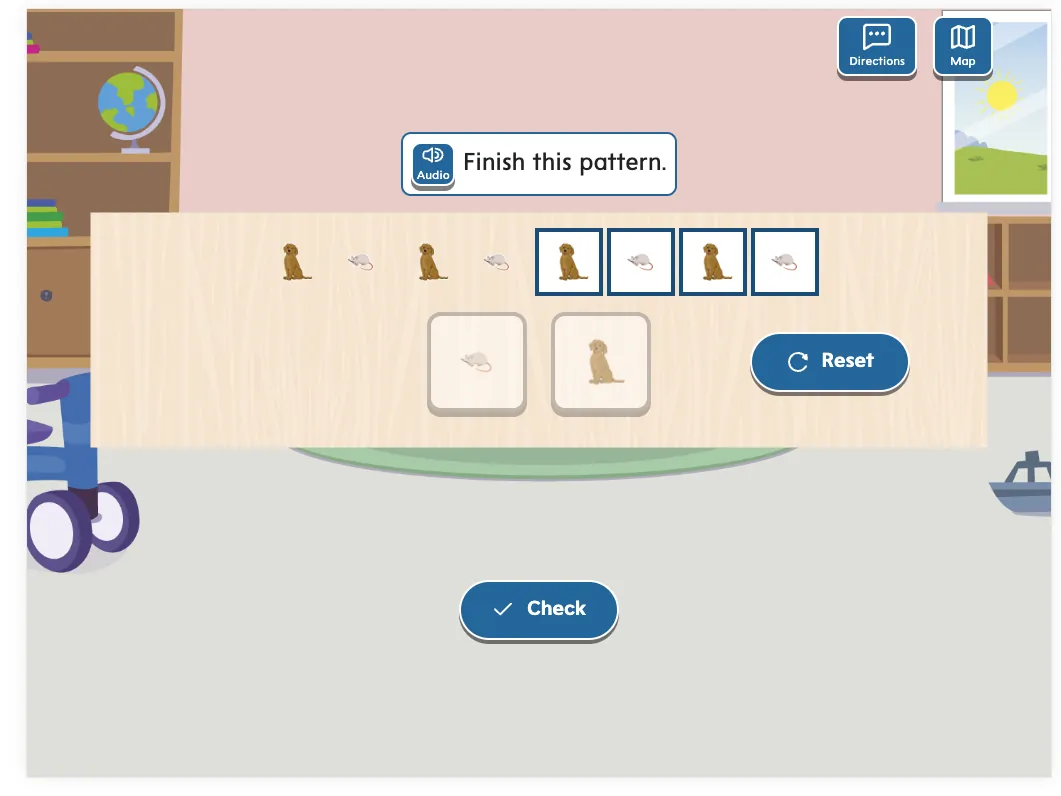
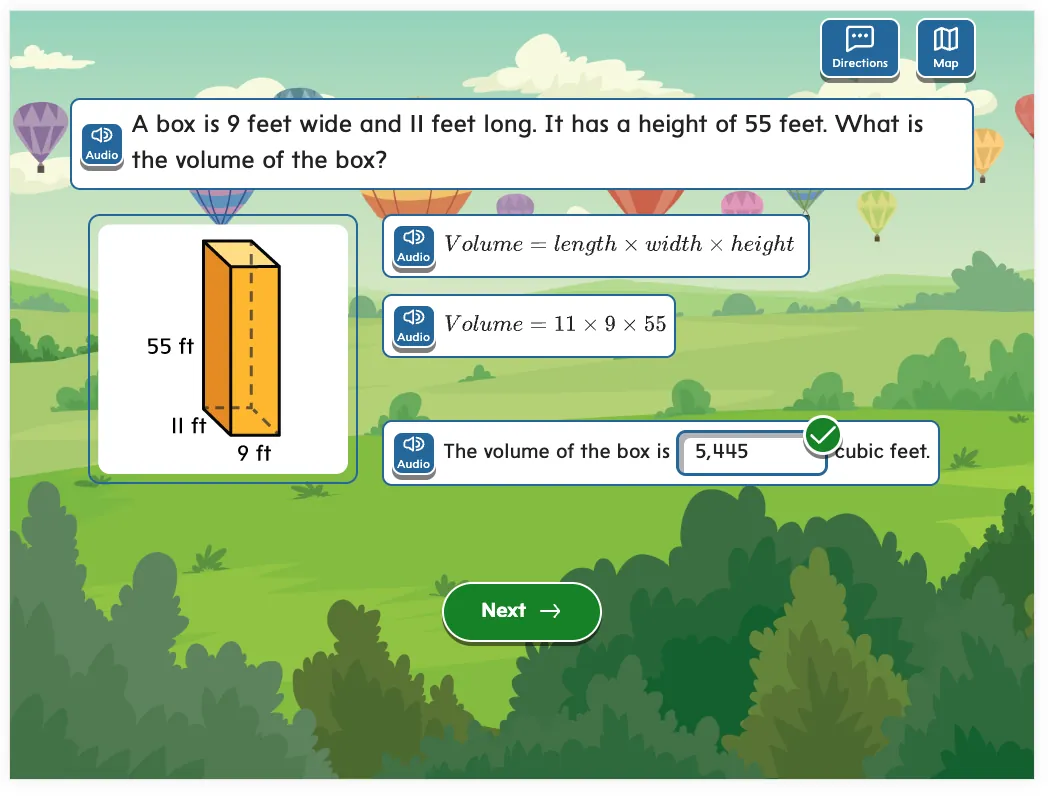
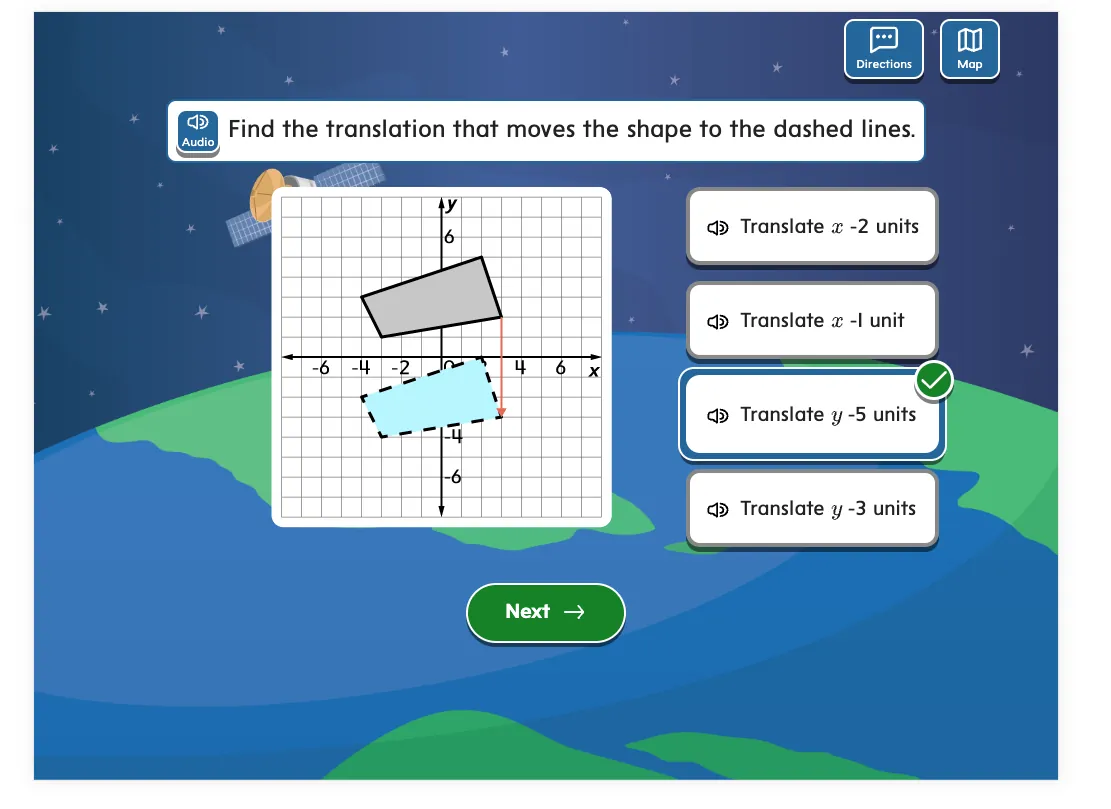
What about Building Blocks Adaptive will be most exciting for teachers?
Liz: I hope that they love the reports we’ve created. We provide teachers with the ability to see progress across the entire scope and sequence of the course and for individual student pathways. We also report on activity outcomes: How did the students do on each of the activities? If a student is struggling, specifically how did they struggle? What did the program do to get them back on track?
Our Trajectory Report frames student progress data through the lens of the trajectories. It makes it easy for teachers to see how students are progressing through counting, addition, multiplication, and so on.
I also think teachers will appreciate that when a student is really struggling, the program will pause and let the student know that we’ve asked their teacher to come help them out. Teachers can pinpoint on the dashboard exactly which students are struggling the most and where they need extra support.
Misty: For any Number Worlds teacher who’s using Building Blocks Adaptive as an individual supplement for their intervention approach, the trajectory report allows them to match up the topics and units where students are struggling in Building Blocks and focus additional instructional time on corresponding whole-group lessons in Number Worlds.
What’s your favorite student activity in Building Blocks Adaptive?
Misty: That’s a tough one. I think my favorites are the tangram activities. The ability to manipulate shapes on a screen and create another picture will be something young children are really going to enjoy. There’s a lot of variability and potential for discovery there.
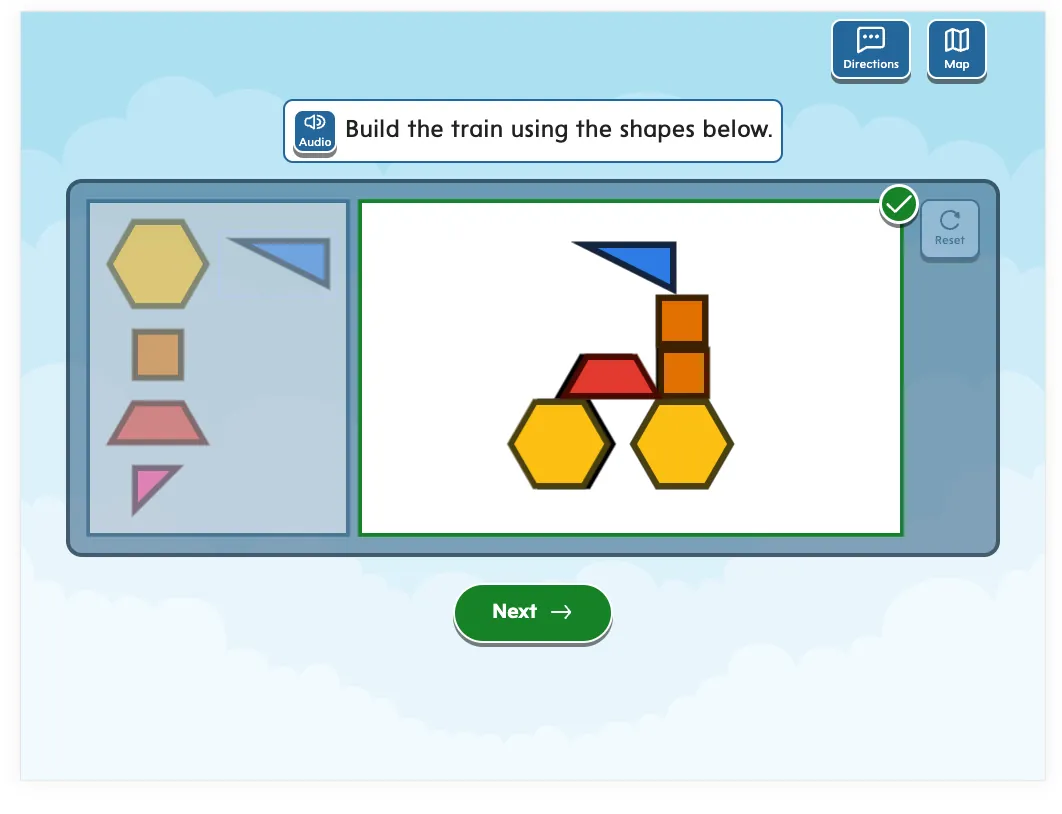
Liz: I also like the activities that use our counting experiences, because they really bring the student into real world contexts. They’re asked to count apples, flowers, and other things they see in their own environments every day. It illustrates to them how math is all around them already.
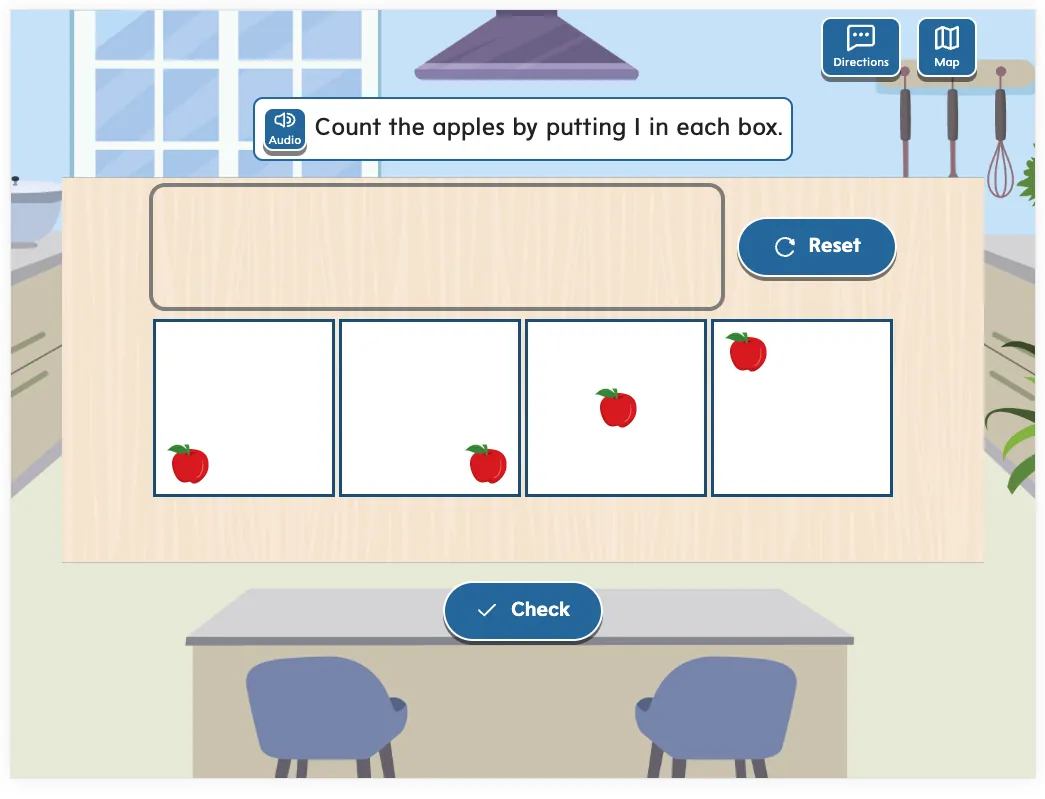
What is your hope for students that use Building Blocks Adaptive for the first time this school year?
Liz: I hope that they find the activities we built engaging and fun, and that ultimately it keeps them on track and moving forward.
Misty: I want students to enjoy the program and find a love of math as they're working through it.
We designed this program very intentionally to not only be instructionally sound, but to be engaging for our students, because we know when kids enjoy what they're doing, that they follow pathways to deeper learning.
Building Blocks Adaptive is available in the 2023-2024 school year to all students and teachers using Number Worlds © 2024.
For more on Building Blocks Adaptive and Number Worlds © 2024, visit: https://www.mheducation.com/prek-12/program/number-worlds-2024/MKTSP-TIG07M0.html




